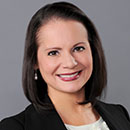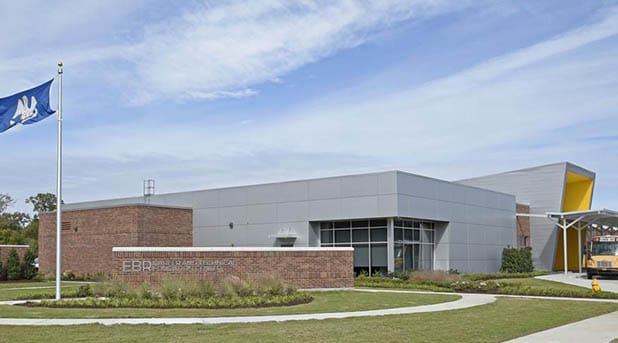Message for Education Companies Offering Their Services: They Can Help her District by Going Quiet for a While.
Susan Enfield is the superintendent of the Highline School District, near Seattle, a region where life has been upended by the coronavirus outbreak.
She has a message for education companies offering their services: They can help her district by going quiet for a while.

Enfield says she’s been inundated with inquiries from vendors touting products they believe will meet her 20,000-student district’s needs during these bewildering times. In a post she put on Twitter this week, Enfield basically told them she’d heard enough.
“It’s 9:00 pm & I finally have time to send this message: to every vendor, solution partner, researcher, education advocate, etc. please stop. Just stop.” she wrote. “My WA superintendent colleagues & I confronting school closure need to focus on our communities. Let us do our jobs.”
EdWeek Market Brief Managing Editor Sean Cavanagh caught up with Enfield and asked her about vendors going too far with their product pitches during the coronavirus outbreak, and about the challenges her district will face in the time ahead.
I gather from your social media post that you’ve been overwhelmed with companies reaching out to tell you about their products.
It’s been overwhelming, but I think everything here is overwhelming now, given what we’re facing.
I would say what they’re saying falls into two camps. There are those that are truly just wanting to say, “We’re here. Whatever help you need, just let us know”. Then there are the others who are just unabashedly, shamelessly hawking their service. In some cases, they’re framing it as, “We know you’re facing these challenges, but we can be the solution.” I think I speak for my other superintendent colleagues when I say, I know where you are, who you are. If I need you, I’ll reach out. But for now, I just need some grace and space to focus on my community.
What separates the messages you want to hear from those you don’t?
I appreciate those who are just saying, “I’m here for whatever you need, I’m not trying to push anything.” But I really resent those who see this as an economic opportunity for themselves. I respect that everyone has to make a living, but being so tone deaf when people are really, really scrambling to meet the basic needs in their community, is pretty appalling.
That said, have you received help from the companies already serving your district?
Yes, absolutely. And that’s a distinction I would make. It’s one thing for someone I already have a relationship with, reaching out and saying, “Hey, we’re here, what do you need?” It’s the cold calls I find so offensive. People I don’t know reaching out. Just stand down for a little bit. Let us do our thing. There will certainly be a time when we have room to breathe, and assess and strategize, and figure out what our needs are. And then we’ll do our due diligence and reach out to the appropriate folks.
The one thing I would say to these people is that so much about working with professional partners is about relationships, and setting a tone. And the tone that’s being set now is not one where people feel it’s someone I want to have a relationship with.
Every decision I make as a superintendent has to be through a lens of equity, and it has to be about solutions and strategies that are scalable, equitable, and provide opportunities for all kids.
By contrast, what are the companies your district already works with telling you?
To be honest, it’s what they haven’t [said]. They haven’t said, we can do this-and-this. It’s more that they’ve said, we’re here for whatever you need. And that’s the message I’ve appreciated the most. I’ve gotten that message from organizations like Finalsite and Gaggle, and others we have a relationship with. That goes a long way at times like this.
A lot of companies are offering products for free. What do you think of those offers?
Well, I’m always skeptical. Again, it’s all about timing. Given the pace at which this situation has evolved, it’s difficult to even know what we need. But one thing I know I don’t need? Distractions. Even well-intended offers of help can be a distractions I don’t need. Even if it’s well-intended offers of free, I just ask that people hold on for a little bit. Unless someone reaches out to [a company] and says, “Hey, can you offer us this service?” And then you can say. “Absolutely we can, we’re going to do it for free, given what you’re dealing with.” That would be a more appropriate scenario.
Washington state is one of the centers of the coronavirus outbreak in the U.S. What’s your district’s status now, in terms of being open, closed?
Today [March 13] was a non-student day for us, a report card planning day. We have some staff in, but not kids. That was already planned. We said goodbye to our students until April 27 at a minimum.
To what extent is virtual or remote learning an option for your district?
We can’t do remote learning at scale. Every decision I make as a superintendent has to be through a lens of equity, and it has to be about solutions and strategies that are scalable, equitable, and provide opportunities for all kids. We don’t have a 1-to-1 device program for every kid. And even if I did, not every kid has reliable internet at home, and not all of them have an adult at home who could help them.
Remote learning at scale in a district like Highline is just not an option. And so we’re not pretending that it is. We’re not attempting remote learning at scale in the way some other districts say they’re doing.
So your options for providing students with lessons are what?
That doesn’t mean we’re just closing up shop and doing nothing. We are providing a robust set of online resources for those families who do have access [and print-based options for those who don’t]. And we’re providing hard-copy packets for our younger learners though middle school.
And so when our families show up Monday to pick up meals, because we’ll be providing breakfast, lunch, and snacks across 12 of our sites beginning next week, we’ll also have curricular resources for families to take home to work with their kids. We’ll also make them available at all the sites where we have food. We’re also contemplating deliveries, too.
How would you pull off making deliveries?
Our state has assured us that we will get our apportionment for staffing, so my staff is getting paid through all of this. That means I do have bus drivers I can call on to make deliveries – of materials, food, what have you. We don’t know yet, but that’s something we’re considering going forward.
What are your other top concerns?
It’s an uncertain time. The fact that I can even put together sentences after this week. I would just say, we’re going to need to be incredibly patient with ourselves and one another as we respond to this. I believe our looming challenge going forward will be providing child care. Our state has asked that we provide child care, but we’re not exactly sure what that looks like yet.
I can’t provide remote learning to every kid in my district, but I also have to do everything to help my seniors stay on track so that they have a chance at graduating this year. Some have been accepted to college already.
The other is kids with special needs, and how we serve them. We’re looking at a very new and different way of working.
SOURCE:

